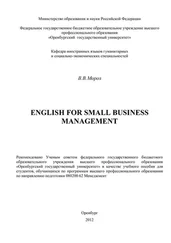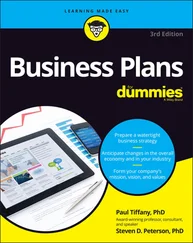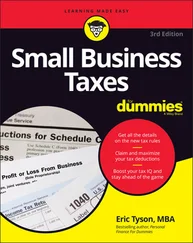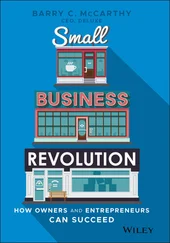You’re committed to ongoing costs: Almost all franchisees pay ongoing royalties in addition to the upfront fees. If these royalties are set too high, you can be left with only marginal profitability.
You face restrictions if you want to sell: All franchise contracts (called franchise agreements ) contain some restrictions regarding the sale or transfer of the franchise, mostly with the intent of ensuring the quality of your successor. While the restrictions are understandable, you may find you can’t sell your franchise as readily as you would an independent business. (This limitation is partly outweighed by the fact that a franchised brand is often worth more.)
You face limitations regarding growth: If your franchise contract defines a specific territory, you can’t expand beyond this territory unless you purchase another franchise. Similarly, you may not be able to expand into selling online to customers outside your territory.
You may encounter a conflict of interest with your franchisor: Any franchisor–franchisee relationship is susceptible to conflicts of interest. For example, a franchisor may feel a franchisee is failing to exploit a territory adequately, thereby underperforming and leaving gaps for a competitor to establish itself. The franchisee, on the other hand, may be quite satisfied with the extent to which it is exploiting its territory.
Despite my many positive experiences with franchises, I’ve also encountered a couple of situations where individual franchisees have failed, and either gone broke or sold their franchise for much less than they purchased it for. For this reason, it pays to spend time doing some research.
Your first port of call is the Franchising Code of Conduct, administered through the Australian Competition & Consumer Commission (ACCC). I suggest you check out this code at www.accc.gov.au . The ACCC also publish an excellent document called the Franchisee Manual , which serves as a great introduction for understanding your rights and responsibilities as a franchisee.
Other useful references include:
Inside Franchise Business ( www.franchisebusiness.com.au ): An organisation dedicated to providing information for potential franchisees about the franchising sector.
Franchise Council of Australia ( www.franchise.org.au ): The official website of the body representing franchisors and franchisees in Australia.
Pre-entry franchise education program ( www.franchise-ed.org.au ): Funded by the ACCC, this free online program gives prospective franchisees a realistic understanding of franchising.
Putting a franchise through the griller
If you’re serious about going into franchising, you’re not going to take long to narrow your options to a handful of franchises. At this point, take care not to set your heart on any one franchise but, rather, research each one carefully. In particular, don’t automatically choose the franchise with the cheapest initial fee. This fee, when considered in isolation, is a poor indicator of the value of a franchise, and of the total ongoing costs (for more about fees, skip to the section ‘ Doing your sums’, next in this chapter).
Here are some of the questions I suggest you ask about each potential franchise business:
Does the franchise pass the test of time? How many years has the group been established? When did the first franchise come in?
Are you a test bunny? How many franchisees are currently in operation? Ask for a list of existing franchise outlets, including names and addresses. If the franchise is newly imported from overseas, has it been market tested locally by careful and thorough pilot testing?
How does the franchise bear up to competition? What makes the business offering of this franchise different from others? How competitive is the market for the particular products or service?
How are other franchises performing? Ask salient questions regarding profitability, turnover and growth. If the franchisor is reticent, find out if any of the existing franchises are for sale. If so, arrange to visit the franchise as an interested buyer, and ask to look at the books.
Who hasn’t continued and why? The Franchising Code requires franchisors to provide details of all franchises terminated in the previous three years. Information about terminated franchises is helpful, but what you also want to ask is how many franchises have been sold, cancelled, not renewed or ceased operating. ( Note: Be careful how you phrase this question in order to cover all possible scenarios!) Ask for the last-known contact details for these franchisees and find out why they didn’t continue. Then ask the franchisor, too — every story has two sides.
What are the fees? See ‘ Doing your sums’ next in this chapter for details.
How much does getting started cost? Ask for assistance to work through a detailed budget, including legals, set-up costs, shop-fitting, signage, stock on hand and working capital.
How will the site be selected? For retail franchises, physical location is everything, and you need to have control over this element.
What are the restrictions? Are you restricted to certain areas, products or even suppliers? What are the competition clauses? In regards to your territory, are you guaranteed exclusive rights?
Are all brand names and intellectual property protected? Ask your solicitor for assistance with this research.
What is the term of the franchise, and what are the options on renewal? If a lease is involved, does the lease coincide with the franchise term? What conditions/fees will apply when you decide to sell the franchise? Both leases and franchises run out. You don’t want to be stuck with a franchise but without a lease, nor do you want to be saddled with a lease and no franchise agreement.
What training and support will be included? Don’t forget to check whether any fees will be charged for this training.
Is the franchisor technology-savvy? You’re looking for an excellent corporate website, online access to product manuals and sales guides, online inventory management, point-of-sale systems, email marketing software and up-to-date computer systems, and possible additional services such as online scheduling or accounting.
Above all, don’t be shy when asking questions — you have a right to know! Any reputable franchisor understands that making sure you’re properly informed serves their long-term best interests. If you can, spend a couple of weeks working in one of the franchises to get a proper insight into how everything works.
 If you do decide to go ahead with purchasing a franchise, ensure that the elements listed in this section are adequately covered in your contact, and seek out a lawyer with specific experience in franchising.
If you do decide to go ahead with purchasing a franchise, ensure that the elements listed in this section are adequately covered in your contact, and seek out a lawyer with specific experience in franchising.
 IS THE BRAND STRONG ENOUGH?
IS THE BRAND STRONG ENOUGH?
Over the years, I’ve come across a few franchisees who feel they paid too much for the initial purchase of their franchise. In every instance, these franchises were for small service-based businesses (such as bookkeeping and lawn mowing), where the nature of the business itself isn’t too tricky, and where word of mouth often plays a big part in building the business. These franchisees questioned whether the ‘system’ was really worth that much, and felt that the brand of their franchise didn’t warrant the initial price paid or the ongoing fees.
Читать дальше
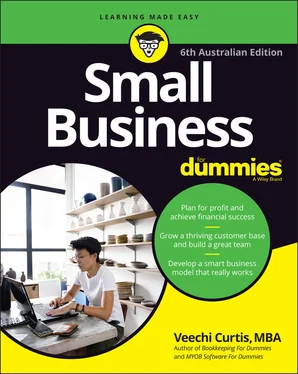
 If you do decide to go ahead with purchasing a franchise, ensure that the elements listed in this section are adequately covered in your contact, and seek out a lawyer with specific experience in franchising.
If you do decide to go ahead with purchasing a franchise, ensure that the elements listed in this section are adequately covered in your contact, and seek out a lawyer with specific experience in franchising. IS THE BRAND STRONG ENOUGH?
IS THE BRAND STRONG ENOUGH?